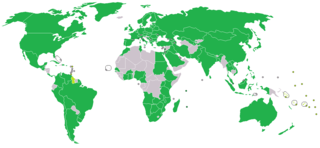
The International Council for Science was an international non-governmental organization devoted to international cooperation in the advancement of science. Its members were national scientific bodies and international scientific unions.
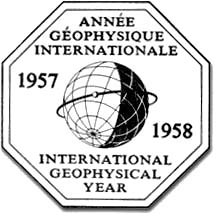
The International Geophysical Year, also referred to as the third International Polar Year, was an international scientific project that lasted from 1 July 1957 to 31 December 1958. It marked the end of a long period during the Cold War when scientific interchange between East and West had been seriously interrupted. Sixty-seven countries participated in IGY projects, although one notable exception was the mainland People's Republic of China, which was protesting against the participation of the Republic of China (Taiwan). East and West agreed to nominate the Belgian Marcel Nicolet as secretary general of the associated international organization.
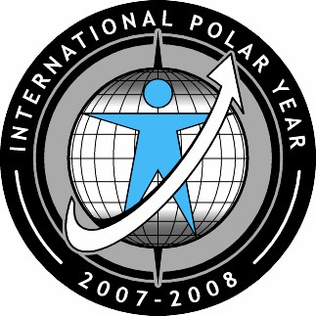
The International Polar Years (IPY) are collaborative, international efforts with intensive research focus on the polar regions. Karl Weyprecht, an Austro-Hungarian naval officer, motivated the endeavor in 1875, but died before it first occurred in 1882–1883. Fifty years later (1932–1933) a second IPY took place. The International Geophysical Year was inspired by the IPY and was organized 75 years after the first IPY (1957–58). The fourth, and most recent, IPY covered two full annual cycles from March 2007 to March 2009.

The World Climate Research Programme (WCRP) is an international programme that helps to coordinate global climate research. The WCRP was established in 1980, under the joint sponsorship of the World Meteorological Organization (WMO) and the International Council for Science (ICSU), and has also been sponsored by the Intergovernmental Oceanographic Commission (IOC) of UNESCO since 1993.
The World Data Centre (WDC) system was created to archive and distribute data collected from the observational programmes of the 1957–1958 International Geophysical Year by the International Council of Scientific Unions (ICSU). The WDCs were funded and maintained by their host countries on behalf of the international science community.
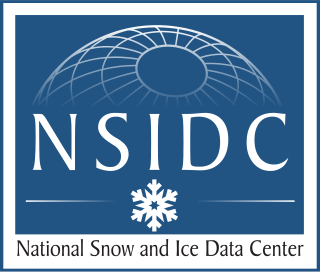
The National Snow and Ice Data Center (NSIDC) is a United States information and referral center in support of polar and cryospheric research. NSIDC archives and distributes digital and analog snow and ice data and also maintains information about snow cover, avalanches, glaciers, ice sheets, freshwater ice, sea ice, ground ice, permafrost, atmospheric ice, paleoglaciology, and ice cores.
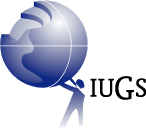
The International Union of Geological Sciences (IUGS) is an international non-governmental organization devoted to international cooperation in the field of geology. As of 2023, it represents more than 1 million geoscientists around the world.

The World Glacier Monitoring Service (WGMS) was started in 1986, combining the two former services PSFG and TTS/WGI. It is a service of the International Association of the Cryospheric Sciences of the International Union of Geodesy and Geophysics as well as of the World Data System of the International Council for Science and works under the auspices of the United Nations Environment Programme (UNEP), the United Nations Educational, Scientific and Cultural Organisation (UNESCO), and the World Meteorological Organization (WMO)
The International Social Science Council (ISSC) was an international non-governmental organization promoting the social sciences, including the economic and behavioural sciences. Founded in 1952, the organization was based out of UNESCO headquarters in Paris, France.
A data steward is an oversight or data governance role within an organization, and is responsible for ensuring the quality and fitness for purpose of the organization's data assets, including the metadata for those data assets. A data steward may share some responsibilities with a data custodian, such as the awareness, accessibility, release, appropriate use, security and management of data. A data steward would also participate in the development and implementation of data assets. A data steward may seek to improve the quality and fitness for purpose of other data assets their organization depends upon but is not responsible for.
The International Union of Basic and Clinical Pharmacology (IUPHAR) is a voluntary, non-profit association representing the interests of scientists in pharmacology-related fields to facilitate Better Medicines through Global Education and Research around the world.
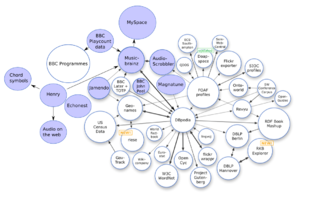
Open data is data that is openly accessible, exploitable, editable and shareable by anyone for any purpose. Open data is licensed under an open license.

Crossref is a nonprofit open digital infrastructure organisation for the global scholarly research community. Uniquely and persistently recording and connecting knowledge through open metadata and identifiers for all research objects such as grants and articles. It is the largest digital object identifier (DOI) Registration Agency of the International DOI Foundation. It has 19,000 members from 150 countries representing publishers, libraries, research institutions, and funders and was launched in early 2000 as a cooperative effort among publishers to enable persistent cross-platform citation linking in online academic journals. As of July 2023, Crossref identifies and connects 150 million records of metadata about research objects made openly available for reuse without restriction. They facilitate an average of 1.1 billion DOI resolutions every month, and they see 1 billion queries of the metadata every month.

Mykhailo Zakharovych Zghurovskyi, Minister of Education and Science of Ukraine. Today he is a rector of the Igor Sikorsky Kyiv Polytechnic Institute.

DataCite is an international not-for-profit organization which aims to improve data citation in order to:

Dryad is an international open-access repository of research data, especially data underlying scientific and medical publications. Dryad is a curated general-purpose repository that makes data discoverable, freely reusable, and citable. The scientific, educational, and charitable mission of Dryad is to provide the infrastructure for and promote the re-use of scholarly research data.
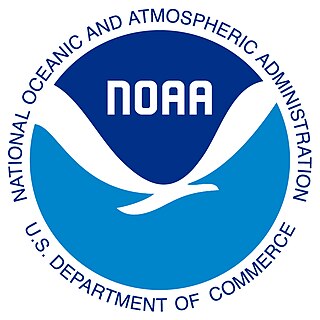
The National Centers for Environmental Information (NCEI) is a U.S. government agency that manages one of the world's largest archives of atmospheric, coastal, geophysical, and oceanic data. The current director is Derek Arndt.

The Research Data Alliance (RDA) is a research community organization started in 2013 by the European Commission, the American National Science Foundation and National Institute of Standards and Technology, and the Australian Department of Innovation. Its mission is to build the social and technical bridges to enable open sharing of data. The RDA vision is researchers and innovators openly sharing data across technologies, disciplines, and countries to address the grand challenges of society. The RDA is a major recipient of support in the form of grants from its constituent members' governments.

FAIR data is data which meets the FAIR principles of findability, accessibility, interoperability, and reusability (FAIR). The acronym and principles were defined in a March 2016 paper in the journal Scientific Data by a consortium of scientists and organizations.
The International Science Council (ISC) is an international non-governmental organization that unites scientific bodies at various levels across the social and natural sciences. The ISC was formed with its inaugural general assembly on 4 July 2018 by the merger of the former International Council for Science (ICSU) and the International Social Science Council (ISSC), making it one of the largest organisations of this type.














